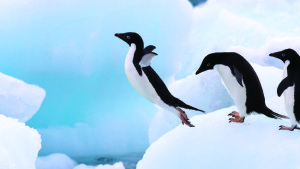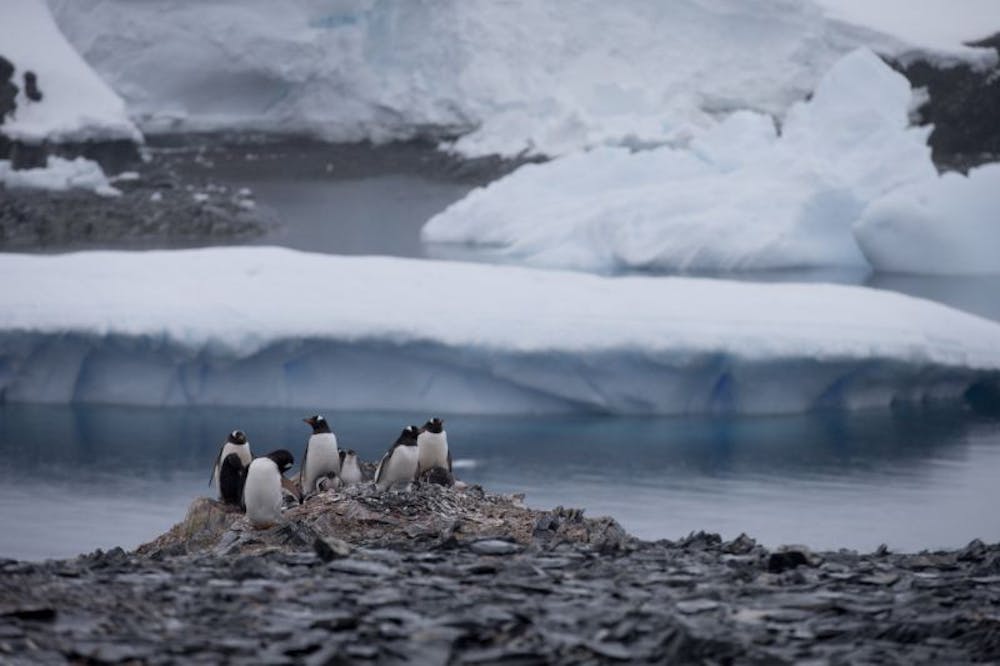By Catherine Herbert
Staff Writer
Over the course of five years, scientists estimate that over 150,000 penguins have perished by means of an iceberg crashing into their home of Commonwealth Bay in Antarctica, which blocked the penguins’ means of getting food, the New York Times reported.
The B09 iceberg was the main culprit, as it merged with expanding ice, Mertz Glacier Tongue, and trapped these penguins in a landlock where they could not access the usual places where they obtained their food. Commonwealth Bay has never before seen this amount of ice, which is why the Adelie penguins have made this their breeding grounds. This iceberg merge began in 2010 and resulted in a massive ice sheet measuring about 1,120 square miles, according to the New York Times. To put this into further perspective, this sheet of ice is roughly the size of the state of Rhode Island, CNN reported.
One of the major repercussions of this merging ice was that this entire colony of penguins had to travel 37 miles across the sheet of ice to find other sources of food. Because of this, the population of Adelie penguins, which once boasted 150,000 members, has been drastically reduced to a mere 10,000, according to CNN. This remains an extremely precarious scenario for the penguins, as scientists predict that unless this ice melts or breaks up, this entire penguin population could be completely wiped out in the next 20 years, CNN reported.

The future of the all Adelie penguin populations may not be as perilous. Off the coast of the Commonwealth Bay resides another colony of Adelie penguins that has a successful and steady population. According to CNN, around roughly 30 percent of Adelie penguins call East Antarctica home.
This iceberg fiasco helped scientists shed light on the overarching issue of steadily increasing climate change in the Antarctic regions. The amount of ice in the sea surrounding this area has been dramatically increasing in recent years. The Southern Ocean is predicted to continue to suffer from these climate changes, which will drastically impact the ocean’s marine life, especially its predators, as predicted by a study conducted by peer-reviewed journal, “BMC Evolutionary Biology,” in 2015.
Because these negative environmental changes due to climate change show no signs of ceasing any time soon, the future of the breeding customs of various land animals could also be affected. The change in environment will force them to try to find food in an environment meant for marine life and a create a lack of prey available for the larger predators, CNN reported.
Scientists are using this myriad of factors affecting penguin populations to focus on the populations in the long term, according to CNN. Melting glaciers appear to be the main reason for declining Adelie penguin populations this millennium, as there is a clear correlation between deglaciation and the Adelie penguins disappearing, but scientists want to use this as an indicator that they need to keep an eye on the population in broader terms, CNN reported.







